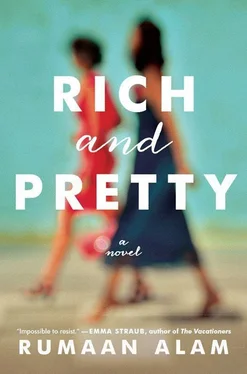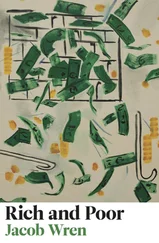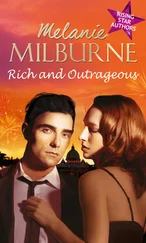“How was work?” Sarah barely has to raise her voice, knows Lauren can hear her from the bathroom, would have been able to even if she’d closed the door behind her, which she has not done.
“Work was work,” Lauren says, mouth full of toothpaste. “The coauthor on this book had a family tragedy, so that was my day. Looking for someone to replace her.”
“Family tragedy?”
“I assume dead mother, but don’t want to ask.” Lauren spits.
“Dead mothers,” Sarah says. “So inconvenient.”
“I’m not trying to be heartless.” Lauren comes into the room, pulling a sweater over her arms. “Too soon for this?”
Sarah shakes her head. “No, probably not, actually.”
“I’m always cold anyway,” Lauren says. “How was your thing?”
“My thing was a bit of a disaster,” she says. She doesn’t want to get into it now. She pictured this conversation transpiring in the restaurant: a chorus of background noise, the comfort of a cabernet. “I’m totally behind, Lolo. At least, according to Claudia Quinn at the Chelsea Terrace.”
“What does that even mean?” Lauren sits on the floor, looks up at her.
“Evidently, if I am getting married next April, I should have started planning on my fourteenth birthday.”
“No room at the inn?” Lauren asks.
“You should have seen the look she gave me when I told her April,” Sarah says. “It was like she was personally insulted as well as embarrassed on my behalf.”
“Well, screw her,” Lauren says.
“True, but still. She has a point. I wasted the whole summer when I should have been making lists and booking a venue and a photographer and all that shit.” She felt like an idiot, that afternoon, with Claudia Quinn, feels like an idiot still. She prides herself on being prepared, on competently dealing with complex situations.
“It’ll be fine,” Lauren says, standing. “Let’s go eat. And drink. And forget about it.”
The restaurant is crowded but not so crowded they have to wait, and after the single kiss on the cheek (more than one is affected) the hostess, whom Lauren introduces as Meg, her second time introducing them now, shows them to a table, and the restaurant is small enough that no one table is any better than the rest. The menu is just a slip of butcher paper left atop the table.
“What’s celeriac?” Lauren frowns. “I can’t remember.”
“It’s gross,” Sarah says. “You know what being in your place reminded me of, just now? Gabe.”
“Gabe?” Lauren looks at her.
“Yeah. I’m not sure why. Actually, I am. It was the bookcase.”
“Gabe.” She exhales. “God, that seems like so long ago.”
“Not so long,” says Sarah. “You sound positively elderly when you say it like that.”
“Almost two years,” Lauren says. “That’s a while. A full sixteenth of my life. I forgot about the bookcase. We borrowed that van from his brother. Do you remember his band? We went to see them once.”
Sarah remembers. Three guys, skinny as teenagers, posing prettily with their instruments on a stage in some bar somewhere. “I recall that.”
“They actually ended up kind of making it,” Lauren says. “Some song of theirs was in a commercial, a good commercial, for Apple, or maybe a credit card. Anyway, yeah, no idea about Gabe, we haven’t kept in touch.”
“But it was amicable. It was we’ll be friends .”
“That’s a thing people say,” Lauren says.
“I didn’t think it was a thing you’d say,” she says. “I liked Gabe. You liked Gabe. I’m just wondering.”
“We’re not all Sarah and Dan, you know,” Lauren says. She gestures for the waiter, but when he arrives, they realize they both intend to order the fish. They negotiate, retract, urge, then settle (fish for Sarah, steak for Lauren). The waiter brings their wine.
“I realize you and Gabe are not me and Dan,” Sarah says. She’s not done with this conversation. She’s not good at broaching conversational topics subtly. She knows this about herself. Huck raised her with a rhetorical style that brooks no disagreement. She’s a pundit. That’s her heritage.
“This is ancient history, Sarah.” Lauren sips her wine. “You liked Gabe. You think I shouldn’t be alone. I get it. I don’t know.” She shakes her head.
“I’m only saying I liked your ex-boyfriend. Jesus.”
“Thanks, Mom,” Lauren says.
“Could we not, please?” Sarah says at last. That terrible sting that precedes tears. “I’ve had a shitty day.”
“Because of that woman?” Lauren’s cheeks are flushed. She smiles, no longer irritated. They can do this, move easily between annoyance and affection.
“She had a point.” Sarah swirls her glass aimlessly, like a connoisseur, which she is not. “I told myself I’d just take the summer. Work as usual. But otherwise relax. We went on one lousy vacation, to the Vineyard, not even, like, something extravagant. The wedding will wait, I thought. But now I feel like I messed up, like it’s one of those dreams where you’ve got the final for a class you don’t remember enrolling in, and you haven’t done the reading and have no idea what anyone is talking about.”
“Maybe this is your excuse then,” Lauren says. “Just bail. City hall. Brunch afterward. Done and done.”
“Lulu keeps buying me wedding magazines, but they all look the same, so she keeps buying the same ones over and over.” On her bedside: a stack, some of them the size of telephone directories, fragrant with those perfume ads you’re meant to unfold and rub onto your skin. “She’s got plans.”
“Are big white dresses still in this season?”
“Do you think I should wear white? My mom is worried about what it implies about my virginity.” That had been abandoned at seventeen, their last year in high school, to a boy named Alex Heard, whose middle name was, incredibly, Elvis. He had a baby face and greasy hair and fat fingers and a stupid, halting laugh, but he was not stupid and was not a terrible guy, either. He’d gone to Princeton, moved to California, did something in tech, that’s what people do out in California, that or make movies. It happened during a party at Hannah Cho’s apartment, a Friday night, October 12, actually; Sarah remembers the date, why wouldn’t she. She’d told her mother about it the next day.
“She’s not serious.” Lauren knows that Sarah told Lulu about it. Fifteen years later still can’t quite believe it. “I can’t believe that people still think like that.”
“Lulu’s old-fashioned. But for God’s sake, I’ve been sleeping with Dan for a decade.” Sarah finishes her wine. “Hey, how are your parents?” She hasn’t seen Lauren’s parents in — she can’t think how long. Indeed, she sometimes forgets their very existence. It’s as though her parents live far away, in New Mexico, instead of across the river, in South Orange. Lauren’s mother had introduced herself first, those years ago, as Mrs. Brooks. Sarah had grown up calling grown-ups by their first names, but tripped over that “Isabella.” She could tell that it was an affront of some sort. Anyway, Sarah’s always thought of her as Bella — that’s how Lauren had referred to her, teenage disdain distilled into two bitten-off syllables. Bella says I can’t wear lipstick. Bella says call by nine. Bella says it’s not healthy to be a vegetarian. She was nice, though, Bella, with kind, tired eyes, and a reassuring way of speaking. Sarah can’t picture Lauren’s dad, Mike, quite as clearly, but that’s the way it is with most dads, her own excepted, of course.
“My parents?” Lauren, elbows on the table, tears into the piece of butcher paper that’s meant to serve as her placemat. It makes a small but satisfying sound. “I don’t know. But speaking of parents — can’t you just outsource? Lulu knows how to throw a party.”
Читать дальше












